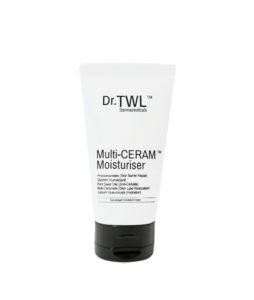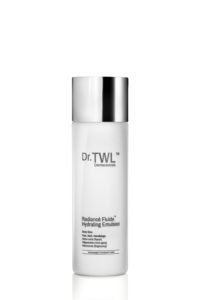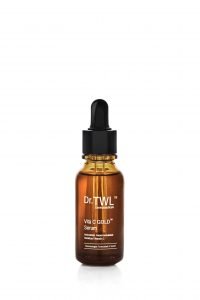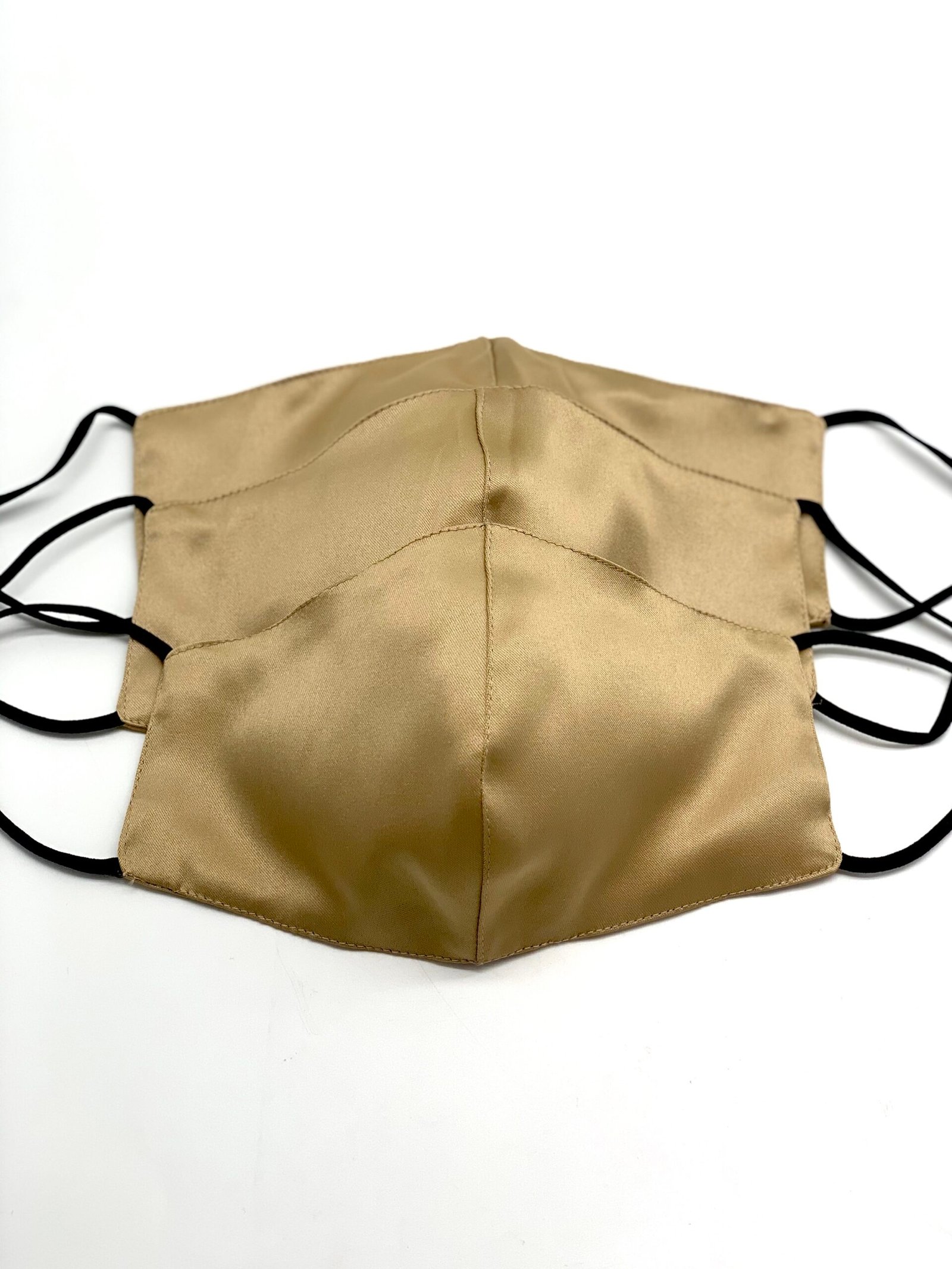Dermatologist Tips for Sensitive Skin
Do you have sensitive skin? Is it a common skin issue, or a medical diagnosis? What products should you use if you have sensitive skin?
In this article, we’ll answer common questions about sensitive skin, dermatologists recommendations on sensitive skin products, including excerpts from Skincare Bible: Dermatologist’s Tips for Cosmeceutical Skincare by Dr. Teo Wan Lin, dermatologist at TWL Specialist Skin & Laser Centre.
How do you define sensitive skin?
Patients often use the term “sensitive skin” to describe skin redness, itch or stinging pain which occurs to otherwise common exposures in the environment or applied topicals. This is not a specific medical term. More precisely, patients with longstanding “skin sensitivity” likely have atopic eczema. This is a genetically influenced tendency to develop dry and inflamed skin, whereas patients who experience acute episode/episodes of “sensitivity” actually have a form of contact dermatitis to a topically applied substance. Which should resolve upon prompt medical treatment and future avoidance of the allergens.
What causes the most basic form of skin sensitivity?
We can more accurately describe skin sensitivity as a constellation of symptoms. There are which skin redness, dryness, flakiness, stinging pain or itch. This can be present on a daily basis or occur from changes in environment. This occurs when one is travelling, or when there is exposure to dust or excess humidity. It can also occur due to dry climates and sweat, or from using certain skin care products or strong cleansers.
The underlying condition, known as endogenous eczema or atopic dermatitis, is mostly an inherited tendency to have a defective skin barrier. This is where the body produces a reduced amount or an inferior quality of ceramide, which is essentially the cement or building block of skin.
Causes of skin sensitivity that may develop later on in one’s life could be due to a condition known as irritant contact dermatitis. The use of products with astringent properties such as products containing detergent, sodium laureth sulfate, alcohol can cause this. For example toners that has the presence of peeling acids eg. salicylic acid, glycolic acid, lactic acid. Some causes of skin sensitivity could be allergic contact dermatitis. This is most often due to preservatives or certain fragrance and essential oils present in skin care products.
Is this condition something that will go away for good? Or will it keep recurring?
Atopic dermatitis or endogenous eczema is an underlying inherited genetic predisposition with tendencies to be affected by commonly present triggers in the environment. The condition is very likely to recur with each flare becoming worse as one grows older. However, they can achieve long term maintenance of the skin barrier. They can lead an almost normal lifestyle with minimal disruptions if they are managed by a dermatologist. Additionally, they should use ceramide-containing moisturisers and gentle cleansers. Patients with atopic dermatitis suffering from more severe conditions will need to use low dose of topical steroids in the long term to manage commonly affected areas. Patients often engage in a common regimen known as proactive management, where they use the appropriate steroid cream two times a week for maintenance.

The Miel Honey Cleanser gently cleanses the skin with botanical emulsifiers like medical grade honey, leaving a clean yet moisturized feel.
Is there any difference between sensitive skin and reactive skin? What are the defining characteristics of each?
With the widespread use of skincare and myriad varieties of makeup available, what would be commonly perceived as “reactive skin” is likely to be a specific allergic contact dermatitis to an ingredient. It is firstly an acute episode, brought on only with exposure with the particular substance. It re-occurs consistently, worsens with repeat exposure, and symptoms are only alleviated when the exposure ceases. The patient usually would not have a previous history or a family history of dry sensitive skin problems.
On the other hand, “sensitive skin” individuals have a long standing history of dry itchy skin. Which can worsen when exposed to strong soaps, sweat, dusty environments, pet fur, pollen mould and carpets. These individuals may also have a personal history of atopy, which encompasses hay fever, asthma and eczema. They may also have family members with these conditions.
What do you need to do, and what should you avoid when caring for sensitive skin?
Patients with sensitive skin are likely to have atopic dermatitis. Atopic dermatitis is a genetically predisposing condition whereby the skin is deficient in fatty lipids that act as a barrier to the environment. While we cannot change the genetic component, the first step would be to use gentle soap free cleansers. This is because strong lathering agents tend to strip the skin of further moisture. Soap acts as an emulsifier, grabbing all the dirt, grime and bacteria and then physically washing it off with water.
Restoring the skin barrier comes in the form of applying ceramide-rich moisturisers, directly replacing the deficient components in dry skin. Avoidance of triggers like dust, extremes of temperature and humidity, sweat, pet fur, pollen, mould etc. would reduce the occurence of flare-ups. However, once symptoms such as redness, flaking, itch or stinging are present, one should promptly seek the care of a dermatologist rather than self-medicate or adopt a “wait-it-out’ attitude. Because, these would require treatment with topical steroids or other anti-inflammatory medications to bring symptoms under control.
Can we treat sensitive skin? How long would it take for one to have less sensitive skin?
Yes patients with sensitive skin actually have atopic dermatitis. Which, while it cannot be cured due to its root cause lying in one’s genetics, can be fully treated and controlled when managed properly by a dermatologist. Such patients actually need dermatological treatment and long term followup as it is a medical condition that can be completely treated. When well controlled, my patients with sensitive skin problems do not experience any symptoms.
What should people with sensitive skin look out for in skincare products?
Liquid cleansers are preferred over bar soaps. This is as the latter tend to accumulate a nasty load of bacteria over time. It can also increase the risk of superficial skin infections in already compromised sensitive skin. Dermatologist- formulated gentle cleansers are recommended for sensitive skin. Different brands have different formulations but they all use soap-free formulas that do not strip skin of its natural oils. Avoid fragranced cleansers if you have sensitive skin.
Are skincare oils good for sensitive skin, since oils have a high affinity with skin and generally contain less ingredients?
An oil would refer to a grease-based formula. We can often categorize moisturisers based on the amount of either “water” or ” grease content”. This affects the texture and consistency of the product. Skin care oils basically moisturise the skin with a grease based formula. These are not the moisturisers of choice because the deficient component of dry skin is not an oil, but a lipid component – ceramide. Hence, ceramide-containing moisturisers are the way to go.

The Multi-Ceram Moisturiser is a ceramide-based ultra intensive skin moisturiser for total skin barrier repair with pharmaceutical grade ingredients such as glycerin which is a humectant, plant seed oils for anti-cellulite effects, and sodium hyaluronate for hydration.
Do you have any go-to products which you recommend for sensitive skin?
Stick to a regimen prescribed by your dermatologist depending on your skin condition which may require specific medical treatment . Use an effective and gentle cleanser and the appropriate moisturiser determined by skin type. Make sure your moisturiser contains active ingredients like ceramide and hyaluronic acid. With varying proportions depending on whether skin tends to be greasy or dry, tailoring to the local climate, which may vary if one is travelling. Both the cleanser and the moisturiser should be dermatologist tested/formulated products suited for sensitive skin. Avoid any form of toners and astringents as these fulfil no real medical benefit other than irritating sensitive skin further. For skin rejuvenation and anti-ageing, it is important to use only antioxidant serums or creams recommended by your dermatologist. Ensuring that they are created in laboratories with a good GMP system (Good Manufacturing Practices) is a major criteria.

The Radiancé Fluide Hydrating Emulsion contains LARECEA™ Extract for regeneration and skin brightening ingredients for a dewy glow. Specially formulated for a light-weight feel to impart a radiant glow without make-up.
For example, vitamin C serums are not all the same, firstly because it’s an unstable compound. Special care goes into the formulation and handling of the compound to ensure it remains effective and non-irritating to the skin.

The Vitá C Gold Serum is containing nano-formulated, stabilized Vitamin C in an intense concentration. It revitalizes dull skin with anti-aging properties.
What about organic skincare for sensitive skin?
When describing medications or skin care products, the term “organic” is not an appropriate use. Its definition is rather arbitrary. The use of the term originates from organic fruits and vegetables which are produce without chemical pesticide residues on them .There is no scientific or medical basis to recommend such skin care products.
What should people with sensitive skin be looking out for in the ingredient list?
They should avoid sodium laureth sulphate which is a common and effective chemical surfactant. There are some dermatologist recommended lines which have this as their surfactant, but in a scientifically balanced ratio and with other moisturising ingredients to minimise any irritation.
An alternative is a unique honey based formula which I use as a natural surfactant instead in the line I formulate, this minimises any potential irritation further from chemical surfactants.
It’s really hard for patients to tell based on the ingredient list as it’s not just what is there, but the proportions, preservatives (which are essential for a safe and decent shelf-life) and also how and with what it is formulated. The best way is to go with dermatologist recommended and tested products.
How do you treat inflammation, what products or irritants should people with sensitive skin avoid during treatment and should they use milder products after treatment?
We can prescribe appropriate strength topical steroids according to the severity of the inflammation. The recommendation would be to stop the suspected cosmetic/skincare product(s) which would be determined by your dermatologist. Only after a careful history taking and review of all the ingredients in the products. It is often difficult to determine this in situations when women are using many different products and changing them constantly. So, in a flare up, I usually tell them to stop everything they are using. Switching to a dermatologist-recommended gentle cleanser and moisturiser. Sometimes, if necessary, a patch test is recommended after the inflammation has subsided to test for a true allergy to the suspected product.
What about ‘doctor-tested’ products?
After the inflammation has subsided, I would advise them to switch their skincare, cosmeceuticals (antioxidant, hydrating, anti-ageing products) and cosmetics permanently to a dermatologist tested and formulated line. Skin rejuvenation and protection is the way forward for all my patients after treating their “sensitivity”. It is not enough to use “mild products” as the term again is misleading. In addition, the “doctor tested or formulated skincare product lines” by the aesthetic medicine and beauty industry are not the same as dermatologist formulated products.
Skin irritation reactions from these products present to dermatologists often as allergic or irritant contact dermatitis. Currently, the HSA does not regulate skin care products and cosmetics. The merchant that brings in these products is directly responsible for the safety and efficacy of their products. Non-dermatologist tested skincare formulations of say, Vitamin C serums, firstly, may not even be stable formulations. I.e with zero or minimal efficacy when applied on skin, and secondly may be suspended in an irritating formula. I recommend that patients look for the term “dermatologist tested and recommended” on their skin care line. Furthermore, look for products made in ISO certified laboratories with GMP (Good Manufacturing Practices).
SHOP THE STORY













Leave a Reply
Want to join the discussion?Feel free to contribute!